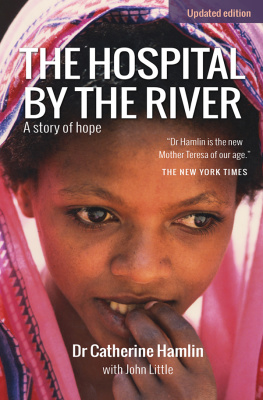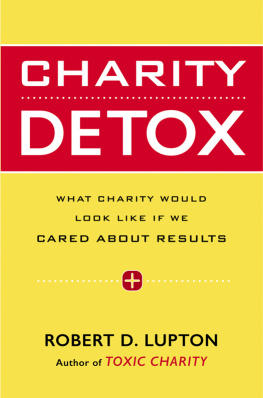
EMERALD STUDIES IN SPORT AND GENDER
Series Editor: Helen Jefferson Lenskyj, University of Toronto, Canada.
Editorial Board: Doug Booth, University of Otago, New Zealand; Jayne Caudwell, Bournemouth University, UK; Delia Douglas, University of British Columbia, Canada; Janice Forsyth, University of Western Ontario, Canada; Tara Magdalinski, Swinburne University of Technology, Australia; Jaime Schultz, Pennsylvania State University, USA; Heather Sykes, University of Toronto, Canada; Beccy Watson, Leeds Beckett University, UK.
Emerald Studies in Sport and Gender promotes research on two important and related areas within sport studies: women and gender. The concept of gender is included in the series title in order to problematize traditional binary thinking that classifies individuals as male or female, rather than looking at the full gender spectrum. In sport contexts, this is a particularly relevant and controversial issue, for example, in the case of transgender athletes and female athletes with hyperandrogenism. The concept of sport is interpreted broadly to include activities ranging from physical recreation to high-performance sport.
The interdisciplinary nature of the series will encompass social and cultural history and philosophy as well as sociological analyses of contemporary issues. Since any analysis of sport and gender has political implications and advocacy applications, learning from history is essential.
Previous Volumes
Running, Identity and Meaning: The Pursuit of Distinction Through Sport
Neil Baxter
Gender, Athletes' Rights, and the Court of Arbitration for Sport
Helen Lenskyj
Forthcoming Volumes
The Professionalisation of Women's Sport: Issues and Debates
Ali Bowes and Alex Culvin
Sport, Gender and Mega-Events
Katherine Dashper
Gender Equity in UK Sport Leadership and Governance
Philippa Velija and Lucy Piggott
Sport, Gender and Development: Intersections, Innovations and Future Trajectories
Lyndsay Hayhurst, Holly Thorpe, Megan Chawansky
Women's Football in a Global, Professional Era
Alex Culvin and Ali Bowes
SPORTS CHARITY AND GENDERED LABOUR
BY
CATHERINE PALMER
Northumbria University, UK
United Kingdom North America Japan India
Malaysia China
Emerald Publishing Limited
Howard House, Wagon Lane, Bingley BD16 1WA, UK
First edition 2021
Copyright 2021 Catherine Palmer
Published under exclusive licence by Emerald Publishing Limited
Reprints and permissions service
Contact: .
No part of this book may be reproduced, stored in a retrieval system, transmitted in any form or by any means electronic, mechanical, photocopying, recording or otherwise without either the prior written permission of the publisher or a licence permitting restricted copying issued in the UK by The Copyright Licensing Agency and in the USA by The Copyright Clearance Center. Any opinions expressed in the chapters are those of the authors. Whilst Emerald makes every effort to ensure the quality and accuracy of its content, Emerald makes no representation implied or otherwise, as to the chapters' suitability and application and disclaims any warranties, express or implied, to their use.
British Library Cataloguing in Publication Data
A catalogue record for this book is available from the British Library
ISBN: 978-1-80043-429-5 (Print)
ISBN: 978-1-80043-428-8 (Online)
ISBN: 978-1-80043-430-1 (Epub)
Contents
About the Author
Catherine Palmer is Head of Department of Social Sciences, Northumbria University. Catherine's research marries empirical and theoretical insight across a range of topics including sport and alcohol and fitness philanthropy. Her most recent books include Fitness Philanthropy: Sport, Charity and Everyday Kindness, Rethinking Drinking and Sport and Global Sports Policy. Her work has appeared in Qualitative Research in Sport, Exercise and Health, International Journal for the Sociology of Sport, Sport in Society, Journal of Gender Studies, Social & Cultural Geography, Sociology of Sport, and she has received significant funding for her research from national and international funding bodies.
Preface
On any Sunday, in any major city, parks and roadways are taken over by people taking part in any number of charity challenges and charity sport events. From fun runs raising money for chronic illnesses through to bicycle rides seeking to raise awareness of social problems such as poverty or homelessness, these events offers an ever-widening opportunity for people to take on the challenge of raising money for a designated charity thereby combining a personal physical challenge with an altruistic purpose (Goodwin, McCombes, & Eckardt, 2009). This, I've termed fitness philanthropy; a socio-sporting movement that mobilises charity endeavours through mass participation sporting events. The term describes those
consumer-oriented philanthropic solutions to health or social problems that draw on physical activity-based events such as fun runs, bike rides, long swims, epic hikes and multi-sport challenges in which participants seek to raise money for and awareness of a variety of health and social causes.
(Palmer, 2016, p. 238)
Be it the Mother's Day Classic raising money for breast cancer research and education, the Buddy Run raising awareness of anti-bullying campaigns among school children or individual competitors seeking sponsorship for the London or New York marathons, an ever-increasing number of people are training for, competing in, donating to or sponsoring a broad range of sports-based charity events.
Alongside individual participation in these charity challenges, corporate sponsorship of events such as the Flora London Marathon, the BUPA Great North Run or the Medibank Melbourne Marathon has seen these events leveraged as part of a corporate social responsibility agenda, whereby sponsors, corporations and organisations look to sporting events (and teams) as opportunities to present themselves as socially responsible, authentic and ethical. The events are also important fundraising mechanisms for charity and not-for-profit organisations, where they contribute significantly to the charity sector. In a typical year there are around 21,000 mass participation sporting events across Australia, in which 3.4 million participants take part, and which raise money for over 2,500 charities. In the United Kingdom, Macmillan Cancer Support raised 3.5 million through running events alone (Macmillan Cancer Support, 2015), while in Australia, in 2016, sport events affiliated with charity were reported to raise AUD$1.3 billion (McGregor-Lowndes et al., 2017), which represents around 10% of all donations to charity in Australia for that year (Powell, Cortis, Ramia, & Marjolin, 2017). This nexus of participants, donors and sponsors has seen sports charity events become unparallelled philanthropic endeavours, bringing together marketing strategies, corporate social responsibility and the agendas of health and medical research and social care to advance research, education and advocacy.













